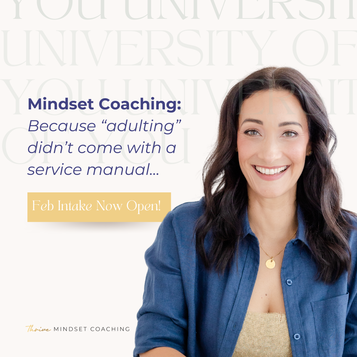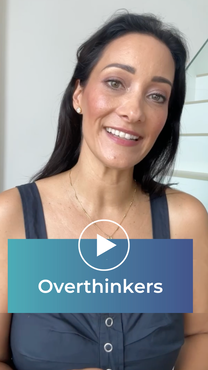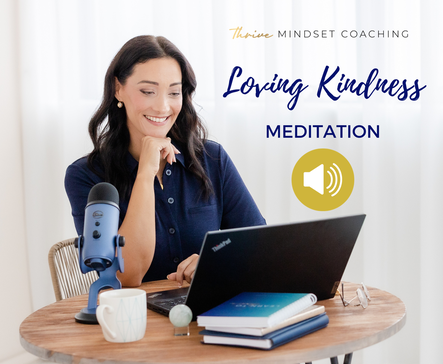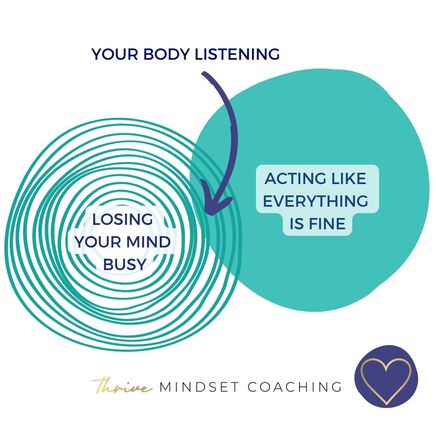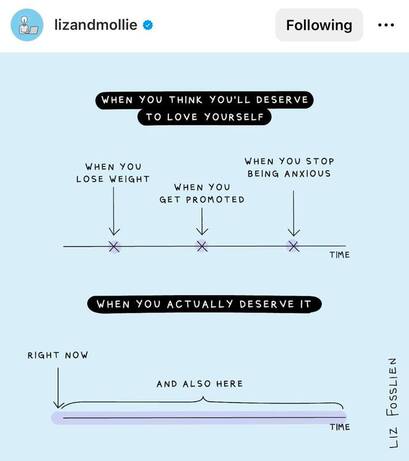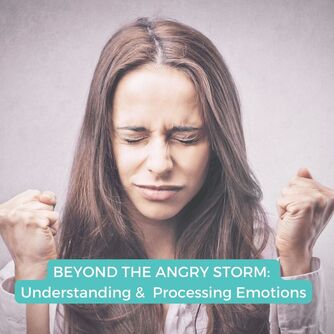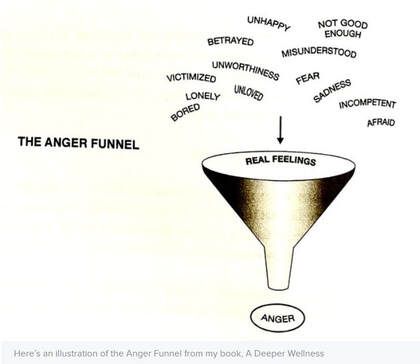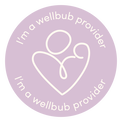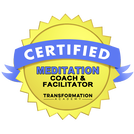AuthorJanel Briggs Categories
All
|
Back to Blog
In January you'll usually find me spending a lot of time over on LinkedIn. Honestly I love nothing more than seeing all the women making career moves and job changes with the fresh start of a new year. Women being celebrated for taking bold leaps into the new and unknown, brings me joy. I understand just how much anxiety and overwhelm arises when making a decision to change jobs, a career or industry. And how important it is to BE in the right mindset to make those big life decisions feel less daunting. People in general are known to struggle with making decisions and find it all very extremely overwhelming. Studies show that this is because we are creatures of habit, hesitant to step out of our comfort zones. When it comes to wading into the unknown we're wired to fear “losses” (what if it doesn’t work and I can’t go back?) more than we value potential “gains” (all the potential possibilities!). When our emotions (like fear, frustration, guilt, resentment) jump in the driver’s seat and dictate our decisions this can lead to several unhelpful roadblocks:
How do you face big life decisions with less overwhelm?Here's my quick 3 step strategy... you won't be surprised it's about clearing your mindset first! 1. DON’T make the decision from an emotional place For example:
Find ways to first calm your mind, process those emotions, get some rest and nourish yourself first. I promise the decision will come so much easier! 2. DO write your pro’s and con’s list
3. DO align your decisions with your values
Fear of making the wrong decision may be knocking on your door, but don't allow it be the reason you decide not to do something. Follow this strategy and take 5 seconds of courage to unlock the possibilities that are awaiting you! I would love to know - if you've been thinking about taking a leap recently, what's holding you back?? Shoot me an email [email protected]! And if we haven't yet connected on Linkedin - you can find me here JANEL BRIGGS  About the Author: Janel Briggs is an Author, Mindset Coach, Practitioner of NLP and Timeline Therapy on a mission to support women across the world in overcoming their anxiety - personal insecurities and professional fears - to build unwavering confidence and self-belief. Mindset Coaching aims to help you fearlessly elevate your life and career, and more importantly the relationship you have with yourself! Connect with Janel on social media via Linkedin or Instagram.
0 Comments
read more
Back to Blog
This one is for all the Overthinkers13/11/2023 Do you ever find your mind spinning about all the “what if’s” and the “unknowns” within a problem or situation and you just can’t seem to shut those damn thoughts off? Overthinking is something that happens to the best of us, and it’s a sure-fire trigger for anxiety. It’s kind of like there’s a dance party going on in your mind with all these thoughts on a wild and random playlist. You’re expecting “Sunday Chill” and get delivered “Hard Rock Hits of 1990”. YIKES! When things get too chaotic, we often forget that we are the DJ of the crazy party going on in our mind. We can take control of the playlist, even if the volume of the music feels a little loud and out of our control. We can dial it down. But how? This week, perhaps start by recognizing when you are overthinking and practice interrupting the pattern of thought. Instead of feeding the train of thoughts with MORE questions and scenarios on the overthinking train, try to disrupt the flow and change the tune. Here is a recent video I did for my overthinkers on Instagram which will help! Overthinking is very common in women who experience anxiety. In fact I’ve dedicated a whole chapter to understanding “why we overthink” in my new book, Becoming Fearless launching next Tuesday Nov 21. Here is a sneak peak of some things I share that can help to quiet down the internal noise:
It takes practice, but honestly from experience there is no amount of rehashing a problem that will help find a resolution in THAT moment if you’re anxious. When our thoughts are like a loud party, then we don’t have space to listen to our inner voice of intuition who is trying to give us advice! Shift focus and come back to it at another time. This is your reminder:Sometimes we have to let go of the problem before we can figure it out. The same thinking that got us into the problem, won't always get us out of it! Ps. You can learn more about Becoming Fearless here and jump on the waitlist to get a copy. It's packed full of actionable tips and tools to help you relieve anxiety, naturally!
Back to Blog
Phew... well, this past week has been A LOT to process, hasn't it? I've felt it too, the sense of confusion, helplessness, and overwhelming emotions from witnessing a world and people in crisis. Sick to my stomach reading and listening to the news, hearing the division and clash of words, opinions, and beliefs all over social media on topics that are far away and closer to home. As we’ve seen for hundreds and thousands of years, division brings destruction. Sadly, I have no solution or answers for you. But I do know that we’ll never be able to right the wrongs of the past with the same thinking that got us here. Often in times like these, when the world-fear and anxiety storm rages I get a little quieter. I go inward to reflect, process my emotions, pray for humanity and peace, and I count my blessings. I also put in place a few essential practices that assist my mindset:
If you're struggling with feelings of hopelessness and sadness from the weight of division in our world I recorded a special meditation for your this week. It's based on an ancient practice that cultivates goodwill and universal friendliness towards oneself and others. After I have done all I can to tackle my emotions and educate myself on a tough problem, this recording helps me to re-focus my mind and nurture my spirit. Then I'll perhaps take a walk, listen to music, meet a friend for a chat, eat something nutritious, read a good book, go for a bike ride or take a nap. These are all constructive ways to support my mindset to fill time that might otherwise have been wasted on worry about all the uncontrollable's in our world today. Take care, JB
Back to Blog
Have you ever found yourself wishing that someone in your life would change, thinking it would make everything so much better? Many women experience stress, mental and emotional strain as a direct result of the other people's behaviours and actions. "IF ONLY he/she would do THIS, then everything would be OK!"
If they would just make "this change" then our life would greatly improve, and I could stop worrying. I know, how amazing would it be if the people we cared about would do what we want them to all the time!! But here's the sad truth: You can't force anyone to change.No matter how much you want it for them or love them, what you say or do for them... only they can DECIDE to make changes in their life. You cannot control their choices or outcomes. And all that pushing will ultimately cause you more resentment, heartache, stress and pain. Which I know is a super hard to hear. I've been there too. I have multiple people in my life today I would LOVE to see change their ways - but a decade of trying to change them broke me and I had to learn to let it go. I've also seen this frustration in a few of my past coaching clients' relationships. Where women who have journeyed on the path of self-discovery for themsleves now want the same for their partner, sibling, child, or partent. However, in attempting to push them to "see the light" and change their habits and behaviours, they've ended up causing themselves angst. This is what I can share: You can't change them, but you can be the inspiration for their change. Perhaps even a catalyst, by showing them what is possible. The decision for someone to change their life has to be their own, otherwise the transormation may be fleeting or won't stick long term. If you can't walk the path for them, what can you do? Continue to focus on your own personal growth and well-being. Be the light in their life. From my experience it takes patience, but in time you may notice small shifts and improvements both in your life and theirs. Here are 5 actions you can take:
True power is found in changing ourselves and inspiring the change we wish to see in others.  About the Author: Janel Briggs is a NLP and Timeline Therapy Practitioner on a mission to support women across Australia and Singapore in overcoming their professional anxieties, imposter syndrome, fears and insecurities to build unwavering confidence and self-belief. Mindset Coaching is about learning how to become fearless and level up your life and career! Connect with Janel on social media via Linkedin or Instagram.
Back to Blog
*TRIGGER WARNING* In honour of World Suicide Prevention Day (Sep 10th 2023) This email talks about grief in losing a loved one to suicide, and how you can support someone you love through a mental health crisis. Three years ago, I tragically lost my dearest friend to suicide. A beautiful fun-loving soul, the kind of woman who had a smile and laughter that lit up the room. We connected on a deep level, even though she was 12 years younger. I think it’s because we shared similar personal, life and spiritual values. We had an interest in so many of the same things, from learning and travel, to cooking and our love for animals. We loved nothing more than to go for lunch in a cosy cafe and sit chatting for hours over cups of tea. Her tragic death taught me many lessons about life, the world, the medical system and myself. I've come to realise the hardest part of grief, in losing someone you love to suicide - is the guilt. Could I, should I … have done more? The answer in the mind is always yes. If I had my time again of course I would do so many things differently. But, in my heart I know I did the best I could at the time. Part of the healing process has been to look at my actions and reactions in this event with my mentor and she taught me something extremely important: Hindsight is a beautiful thing, but no amount of overthinking it will bring peace or bringher back. Acceptance is the key to healing. I’ve come to realise that my fear of “losing her” in her mental and physical health battle kept my mind clouded and captive. My voice of fear said: “What if I say the wrong thing and she dies? I don’t know the answers for how to help her in THIS pain”. Instead of tuning into my voice of wisdom: “You can never say the wrong thing when it comes from a place of love. What if you say the right thing and she lives?”. This is why I am so passionate about helping women with anxiety to learn how to quiet their voice of fear and tap into the loving kindness of their intuition, their voice of wisdom. By encouraging, understanding, reaching in, and sharing experiences with others, Suicide Prevention Day is about giving people confidence to take action to prevent suicideGrief, as you probably know if you've experienced the it, has this way of stripping your heart bare to the darkest depths of your soul. And somehow over time your heart begins to slowly mend the cracks. I guess is the power of healing and love. But, you are for sure never the same person again. The anniversary of her passing each year coinciding with World Suicide Prevention week every September I know as a message for me to remember to, and not be afraid to, tell her story. I will continue to bring light where I can to the darkness. She is worth it, and so are you. This is a message for anyone who has a loved one or friend who struggles with their mental health.HOW YOU CAN HELP SOMEONE YOU LOVE IN A |
|
Stay Connected
Subscribe and be the first to access new blog content news & updates. |

 RSS Feed
RSS Feed
